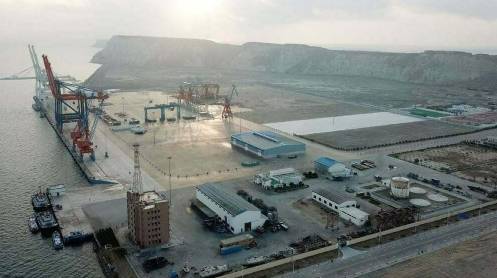ISLAMABAD: Pakistan’s outstanding dues to Chinese-backed power projects under the China-Pakistan Economic Corridor (CPEC) have surged to a record Rs493 billion or $1.8 billion as of last month, marking a staggering increase of 77% within seven months.
The significant rise in dues during the caretaker government’s tenure poses a serious challenge for Pakistan’s economic ties with Beijing.
Sources revealed to The Express Tribune that by the end of January, Pakistan owed approximately Rs493 billion to Chinese power generation and transmission projects, up by Rs214 billion or 77% from June last year.
The primary cause behind this surge is attributed to the Power Division’s failure to settle at least 90% of the monthly claims from these projects. For instance, in June, power plants submitted claims worth Rs110 billion, but the Power Division only settled around Rs60 billion, representing just 53% of the total claims.
Last month, China associated the approval of a $600 million foreign commercial loan with Pakistan’s prior settlement of debts owed to Chinese power plants. This unusual condition indicates growing discontent within Chinese circles.
Under the Energy Framework Agreement of the CPEC, Pakistan committed to establishing a revolving fund to deposit 21% of power payment invoices to safeguard Chinese firms from circular debt. However, instead of setting up the fund, Pakistan opened the Pakistan Energy Revolving Account (PERA) with a Rs48 billion annual allocation in October 2022. Consequently, the debt owed to Chinese IPPs has soared to around Rs400 billion.
Despite the urgency of resolving the dispute, the government only allocated Rs4 billion to settle Chinese energy debts in February, suggesting a lack of urgency. This monthly allocation falls short of covering the monthly inflow, leaving the debt unresolved.
The breakdown of outstanding dues reveals that the Sahiwal power plant tops the list with Rs97 billion owed, followed by the Hub and Port Qasim coal-fired power projects with over Rs80 billion each, and the Thar Coal project with Rs79 billion.
The Chinese government has repeatedly raised concerns about these overdue payments through diplomatic channels. The situation has also hindered fresh lending from Chinese insurance company M/s Sinosure to Pakistan’s power sector projects.
The looming debt crisis has raised alarms among Chinese businesses, impacting Pakistan’s ability to secure new loans for vital projects like the Mainline-I railways project under the CPEC.
Moreover, overdue payments to various CPEC projects, including Engro PowerGen, Matiari-Lahore Transmission Line, and Karot power project, have further exacerbated the financial strain.
The International Monetary Fund’s recent rejection of Pakistan’s Rs1.27 trillion circular debt reduction plan underscores the severity of the fiscal risks associated with the debt crisis.
(Story by Shahbaz Rana)







